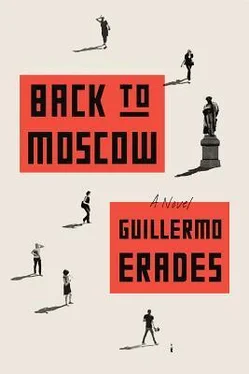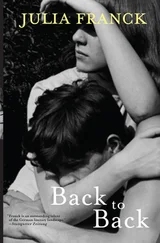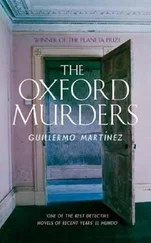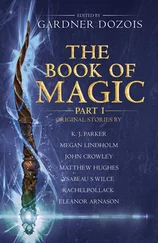The waitress brought my second cup of coffee with a smile. Unable to concentrate on The Master and Margarita , which I was reading in Russian for the first time, I closed the book. I looked at good old Tchaikovsky, who was sitting outside the conservatory, in the middle of the square, his right arm over a lectern, his left hand half raised, as if asking people in the street for silence. The muted notes of Swan Lake tried to emerge from a remote corner of my memory, carrying the forgotten sadness of another time, of another life, of Amsterdam.
I glanced back at the book. The cover featured a black and white sketch of Margarita flying on a broomstick. I started to picture myself as Bulgakov’s Master. I’d gone through a similar mental exercise in the early days of Yulya Karma, but now I was considering the book from a different angle. I was wondering why, among all the women in Moscow, it was Margarita the Master was obsessed with. What was it that made Margarita irreplaceable?
If you thought about it, it was a matter of chance that they’d met in the first place, Margarita and the Master, when she was carrying a bouquet of yellow flowers. I began to think of how most relationships are based on a random encounter, a set of small interlinked events that lead to the fateful meeting. It was Margarita that the Master had met, but it could have been any other woman. Then, once things get complicated, with the Devil coming to Moscow and all, the Master could have decided to move on, to forget Margarita. He doesn’t. The way Tatyana doesn’t forget Onegin. Or Karenina doesn’t forget Vronsky. Or Liza doesn’t forget Lavretsky. Moving on is the easy way out, the path that’s never chosen, at least not in books. For some reason, in most novels, once you’ve made a romantic choice, even if it’s a random choice, you stick to it. And you accept all the suffering that comes with it. This is, after all, a fundamental premise in classic literature: a lover is irreplaceable.
And yet, this kind of love, the maddening attraction we read about in books, is nothing but a literary device, I thought, an author’s trick to endow characters with strong motivations. In real life feelings are more malleable — suffering is optional. If things go wrong, you can move on and search for someone else.
Take Dushechka, in Chekhov’s story, who’s happy as long as she has someone to love, to worry about, regardless of who the recipient of her affection is. Maybe Dushechka’s kind of love, a strong feeling whose object is replaceable, is the real kind of love.
I thought about Tatyana. If she were taken from me by a Devil-like figure, or if she decided to leave me for someone else, should I suffer and fight for her? Couldn’t I just move on to the next girl?
All this was new to me. Had I understood these things earlier, before Moscow, I wouldn’t have had to go through the pain Katya had inflicted on me. Now, when I looked back at my time in Amsterdam, I wondered why I hadn’t just moved on, like Dushechka. Why had I decided to suffer, as if I were a character in a novel?
After Katya came Lena and after Lena came Tatyana. In the end, in an unplanned manner, I had replaced the object of my affection. But what I felt now was not an endless capacity for love — as Tolstoy had said of Dushechka — but rather a comfortable degree of nonchalance. Like the Master with Margarita, my relationship with Tatyana had also evolved from a casual encounter: the moment she showed up at Kamergersky to show Colin an apartment. Our being together had been determined by a series of random actions without much individual meaning in themselves — random actions that, put together, marked the direction of my life.
This bothered me. Maybe Colin was right and the one thing to do was to forget about relationships and fuck around. But then, if we accept this readiness to replace a lover, to care about nothing, life itself dissipates into Chekhovian lightness. With nothing to care about, how do we go about looking for happiness?
Perhaps the antidote to this weightlessness is to endow life with a forced sense of gravity. Choose to care about things. Choose to consider our relationships as a matter of life or death.
Once, when Lena had been crying in my flat — I no longer remember the reason — I asked her why she always made such a big drama about everything. Why couldn’t we just have a happy relationship, without the tears and the shouting? ‘If we don’t suffer for it,’ Lena had told me, ‘how do we know our love is real?’
Buried in their mysterious soul, I thought, there is something that makes Russians avoid superficial joy and choose to pursue deeper, sadder feelings — something that makes them chase the resonance and aesthetic value of melancholy. Liza’s choice. And, perhaps, they got it right.
I looked across the square at the statue of Tchaikovsky, thinking that I needed to care about Tatyana as if I were the protagonist of a Russian novel: without doubts. I must decide to be with her, I thought, and blindly take all the shit that comes with my decision. To relieve myself of the burden of choice, I now realised, I needed to believe in destiny. And accept pain. Like a Russian.
I HAD BEEN WANDERING around the centre for an hour. The morning heat was so unbearable that I decided to take refuge at the subterranean shopping centre in Okhotny Ryad. In the Internet café, I bought a cup of coffee and sat in front of a computer, enjoying the cooled air. I read a few international papers online, then responded to emails from family and old friends.
As I was walking out of the café, I received a text from Tatyana suggesting that we meet for lunch at Ris i Ryba, a sushi restaurant in the Dom na Naberezhnoy, the House on the Embankment. Sure, I texted back. I wandered among the shops, trying on clothes but buying nothing, and, when it was almost noon, I came up to the street.
There was nowhere to hide from the sun. I walked past the fountain with the horses, where a bunch of children were messing around with the water, covering some nozzles in unison to increase the water pressure and catch distracted pedestrians by surprise. They seemed to be having a good time. I dragged my feet through the park, under the blasting sun, and reached the end of Aleksandrovsky Sad — my shirt, drenched in sweat, stuck to my back.
On the other side of the asphalted esplanade, across the river, stood the Dom na Naberezhnoy, crowned with its enormous Mercedes-Benz logo against the blue sky. The encircled three-pointed star was not entirely aligned with the façade of the building and, every time I walked by, I wondered if perhaps the logo was meant to rotate around a central axis that no longer worked. As I walked over the bridge towards the building, it occurred to me that, maybe, at sunset, the Mercedes-Benz shadow would reach across the river, towards the walls of the Kremlin, a reminder to Russian rulers of their country’s defeat in its twentieth-century crusade against capitalism. The giant logo had probably been installed in the mid-1990s, when Russia, naively in love with the West, had embraced everything foreign with enthusiasm. I wondered if the country felt betrayed and, in my head, I imagined Russia as a woman writing a love letter — Tatyana’s letter to Onegin — to an unresponsive and arrogant West who had arrived after the collapse of the Soviet Union, not so much to help with the reconstruction, but to oversee the country’s capitulation and collect the spoils of the Cold War.
I entered the building through one of the southern entrances next to the Udarnik cinema, passed the okhrannik and went through a metal detector which I suspected hadn’t worked for years. I took the lift to the first floor.
The doors opened and I stepped into the fresh, artificially cooled air. Soothing lounge music played in the background. The waiter, probably Kazakh or Uzbek — most waiters in Japanese restaurants were of Central Asian origin — was dressed in black trousers and a black shirt with a white collar. He led me along the central aisle, passing by the open kitchen and sushi belt, to a small table by the huge floor to ceiling window. I found the smell of boiled rice comforting. The window overlooked the road, the park, the river. I ordered green tea and waited for Tatyana.
Читать дальше












